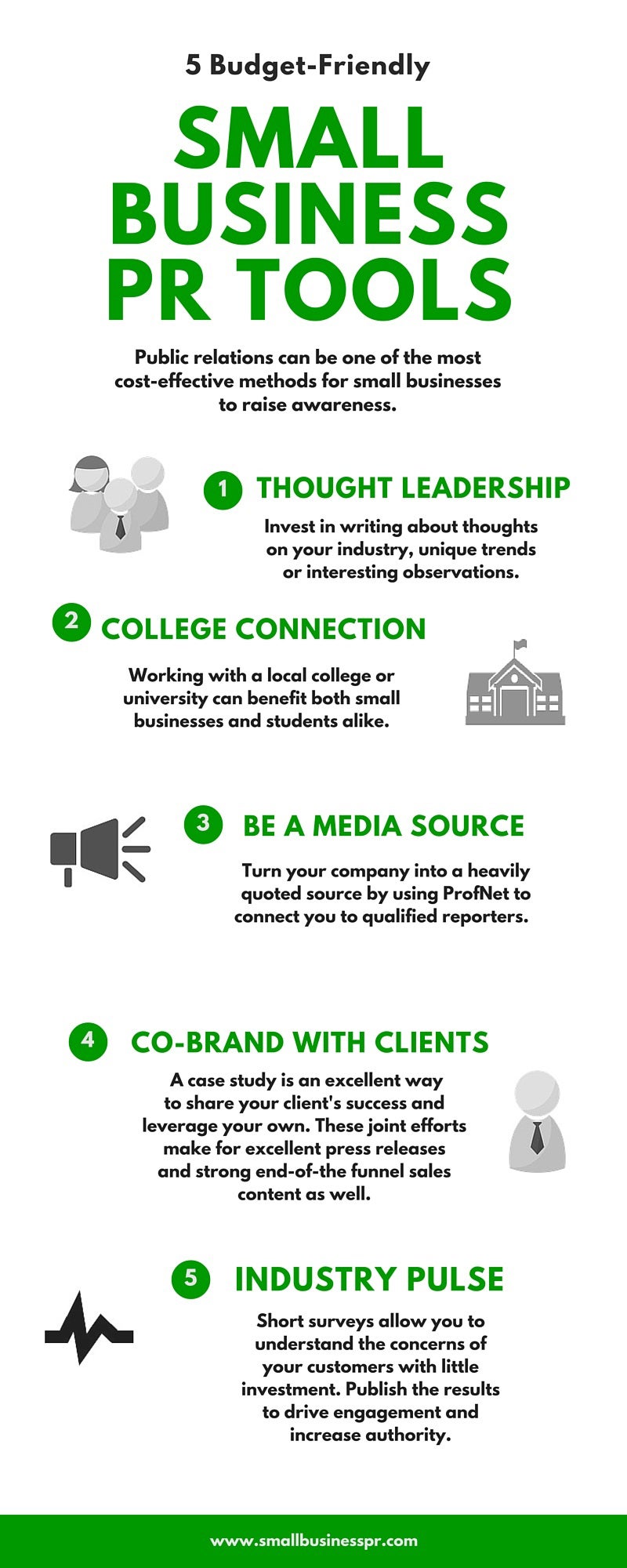5 Inexpensive Ways to Do PR for Your Company Here are a few ways to get your name out there without spending a lot of money.
This story originally appeared on PR Newswire's Small Business PR Toolkit

A PR company can be one of the best, and most expensive investments to your business. When you're first getting started, or you're bootstrapped for cash, a third-party expert to handle these communications is tough to afford. But there are plenty of ways to get your name out there without a big investment.
1. Become the authority in your industry
Writing a blog for your company website not only helps you gain traffic to your website and rank in search engines, but it can make you an authority in your industry. Marcus Sheridan saw first hand how simply answering questions on his blog lead to positive PR and company growth.
Sheridan, the owner of River Pools and Spas, was hocking a luxury item in 2009 during one of the worst economic recessions. Rehauling his marketing plan, he focused on answering basic questions his potential customers would type into a search engine. By simply answering his clients' questions, his blog posts were ranking organically on search engines, showing authority in the pool and spa industry, bolstering sales, and leveraging his media story. Many press stories later his successes were featured in the New York Times.
Invest in writing about thoughts on your industry, unique trends, or interesting observations. These thoughts often get referenced or quoted, not only by peers but also the media. Keep the content consistent to brand the company or yourself as a subject authority in your industry.
2. Connect with a local college or university
Working with a local college or university can benefit both small business and students alike. For students, many look for internships in their junior and senior years to gain real-life experience before entering the working world. Students interested in working in public relations post graduation can assist in your PR efforts with a fairly minimal financial commitment. The students gain perspective on what it's like working in their chosen field, and small businesses gain the unique perspectives that come from someone who may or may not know or understand your industry.
3. The media needs sources, too
Being quoted as a thought leader or featured in a press piece can have big returns for your business, but sometimes the media needs sources to quote, too. Services like PR Newswire's ProfNet help connect qualified journalists and bloggers with people looking for publicity. Queries are free of charge to send, or you can sign up to receive queries from writers.
Plus, for subject matter experts, you can see the current media queries, receive alerts from writers proactively writing about your area of expertise, and even view potential speaking engagements, workshops, and conferences.
4. Co-brand with your customers or clients
As a successful small business, you're likely doing something right by your customers or your clients. Share their success and leverage your own. If your company's widget or tool increased your customer's productivity, make it known. Pull together a case study that speaks to the client's success and the unique attributes to your business that made the client successful. Once completed, both companies can use the case study to solicit for new customers and to reach out to media as well. These joint efforts make for excellent press releases and strong end-of-the-funnelsales content as well.
5. Take the pulse of your industry
Short surveys allow you to understand the concerns of your customers and clients with little investment, but taps into a press-worthy opportunity, too. People love numbers and statistics, and the media is no different. Publishing your survey results, as well as some insights, not only pegs your company as a trusted thought leader but as a source of information, especially in industries with little or no published statistical results.
Click to Enlarge
Written by Rich Kahn, founder and CEO of eZanga.com








